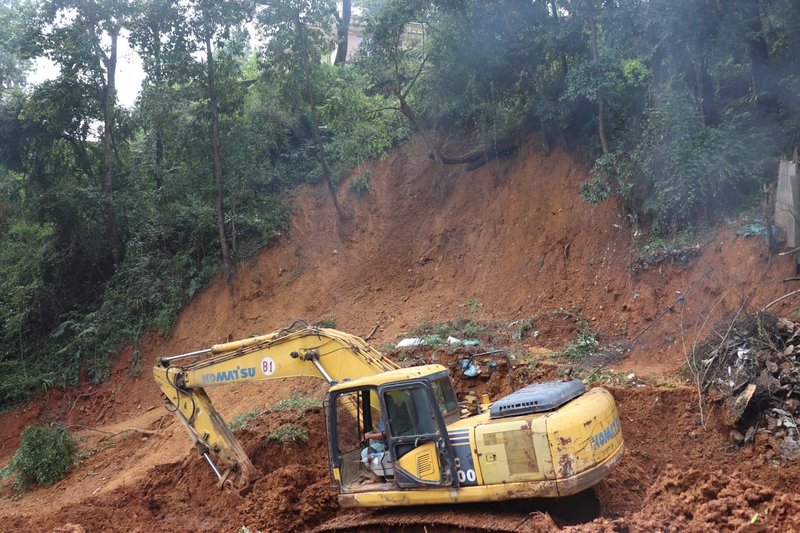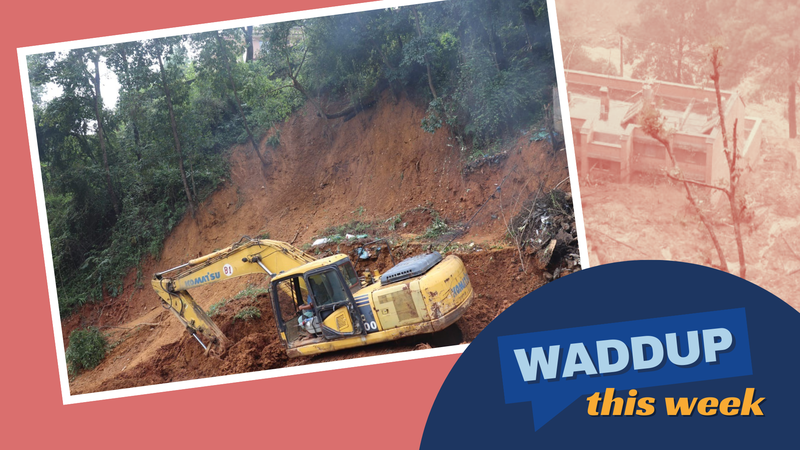Emergency on planet Earth
Peter Waddup, CEO - The Leprosy Mission Great Britain
Why is climate change only an issue when it affects us? When is it time to put people before economic growth?
I was privileged to attend The Times' Earth Summit in London on Tuesday. Yet these were my questions as I walked away. Don't get me wrong, it was an enlightening day and I was so impressed by every one of the speakers. Yet I left jaded by the ways of the world and even more fearful for the lives of the world's poorest people.
It is hard to ignore that extreme weather events are hitting the world ever more frequently. In fact by morning coffee on Tuesday there had been five mentions of the Florida hurricanes. There's no doubt they were frightening and destructive. Yet other climate-exacerbated weather events seem to have paled into relative insignificance.
Take this month's record monsoon rains and landslides in Nepal, causing the country's worst flooding in 50 years. Overnight roads turned to rivers or were completely buried in mud. At The Leprosy Mission's Anandaban Hospital, buildings and trees cascaded down the mountainside. The hospital is reeling from the devastation and operating in an emergency state. Yet climate disasters in the developing world are barely mentioned in the UK media. This is despite it taking resources out of reach for the people there to recover from the chaos caused.
I raised this as a question at the summit. I even extended an open invitation to the Environment Editor at The Times to visit Anandaban Hospital. It is important for us all to understand what we're not hearing in the media. Watch this space!

The clear up operation begins this week after deadly rains and landslides hit Anandaban Hospital in Nepal.
It is an injustice that climate change hits the world's poorest people first and the hardest. And it's making global poverty worse. In the past decade, the world's poorest countries have been hit by almost eight times as many natural disasters than in the 1980s. And to add insult to injury, they risk the lives of those who have contributed the very least to climate change.
We can all do our bit to reduce our individual carbon footprints. We can make wiser choices about the food we buy, take less flights and power our homes with green energy. Yet we desperately need world leaders to go far beyond their 2030 commitments. The trouble is neither the outgoing Tories nor the new Labour government have yet been willing to do this. Instead the eternal quest for economic growth has been prioritised. But if we are to prevent the death of our planet as we know it, we need to put people before profits. Would it be different if the people with the power were those suffering the effects of the climate crisis?
It was a huge encouragement to hear Mayor of London Sadiq Khan speak at the summit. It showed that when faced with the effects of climate change, we can prioritise change. Sadiq Khan is the first incumbent mayor to increase his majority. His electorate saw that despite the cost of his policies, they were needed. When he first set out to tackle pollution in London, more than 100 schools fell in dangerous air zones. This has since been reduced to 20 schools. In a year there should be no schoolchildren breathing in polluted air in our capital! People are recognising that London is a safer place to live even though there is a cost to it.
In my job I am always touched by the human kindness shown by people who have next to nothing. Age-old prejudice surrounding leprosy means people with the disease often lose everything. Their family, job, home and community. Often when they are at their lowest ebb they encounter someone who selflessly takes care of them. This could be a stranger helping them to get medical care or sharing what little food they have. It genuinely restores my faith in human nature. Yet it does lead me to ask why we as a nation, people who relatively have so much, are not doing more to help the world's poorest? The people bearing the brunt of our human-caused climate crisis right now.
